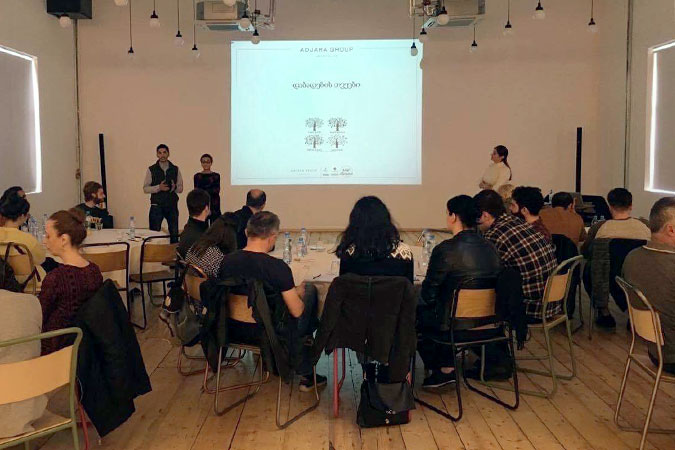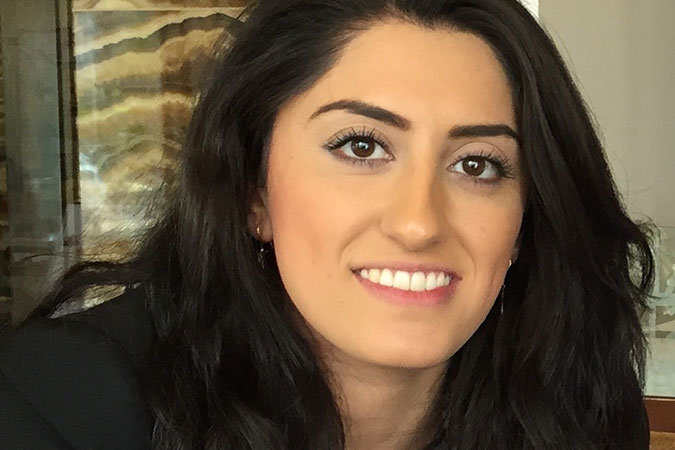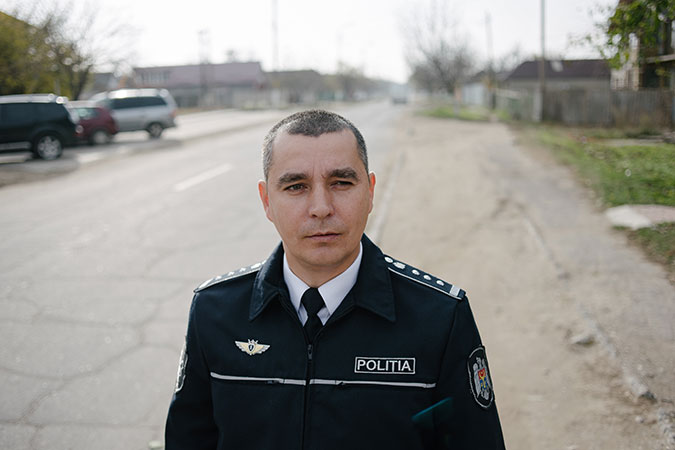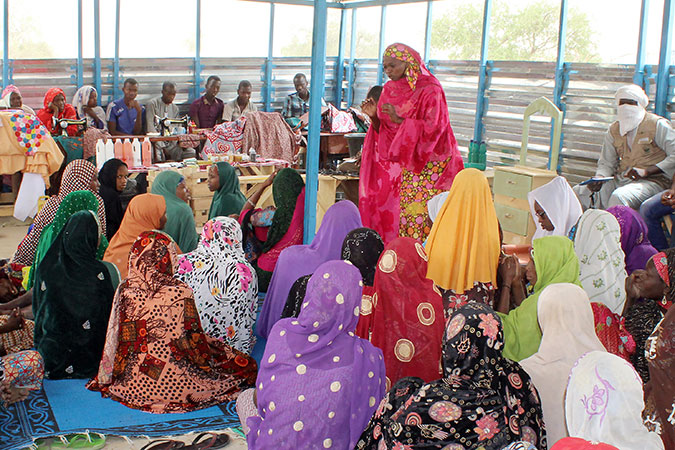Empower
Standing up for survivors in the Shari’a court every day: Ayah al-Wakil is determined to leave no woman behind
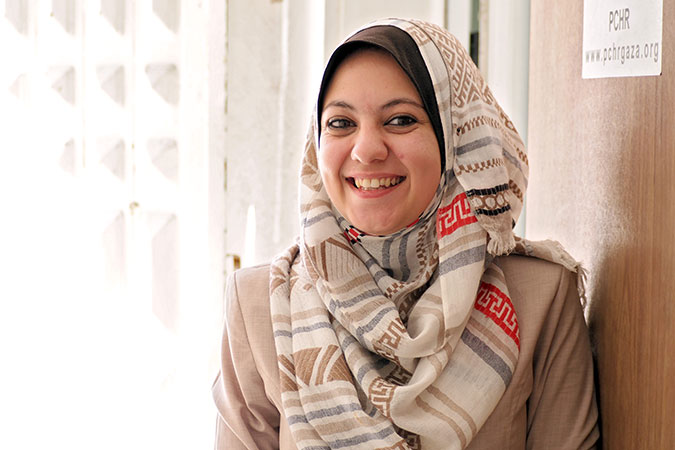
Ayah al-Wakil is a lawyer working at the Palestine Centre for Human Rights (PCHR) in Gaza Strip and works in the Shari’a court. In Palestine, the Shari’a court deals with family matters codified in the Personal Status Law relating to marriage, divorce, child custody and inheritance. Going to the Shari’a court every day to file cases on behalf of survivors of violence has been her morning routine since 2015. She lives to empower others.
“If you find yourself in a place that allows you to make a real difference in other women’s lives, obstacles will not stop you anymore,” she says.
Although al-Wakil’s day is full, preparing legal documents and going to court, she always makes time to talk to women who need her. Faten Ashour* is one of the women who regularly visit al-Wakil, even after her divorce was finalized with al-Wakil’s help. Finally free from her 13-year abusive marriage, Ashour is now preparing to finish high school.
“I was very scared and tense before my first appointment with Ayah,” recalls Ashour, who had experienced a series of obstacles at the court before meeting al-Wakil.
“Ayah was different from other people that I met in the court. She listened to me and respected me,” she added.
Gone is the woman who kept things to herself and stayed silent when facing injustice. Faten Ashour now speaks up for herself and tries to encourage other women, including her sisters, to seek help when in abusive situations. Read more►
More stories
In Georgia, businesses step up to support survivors of domestic violence get a fresh start
Five months ago, when Lika Goguadze returned to work, it was the first time in four years. “I have not had any job since I got married; my husband forbade me to work…Without a job, it would have been very hard for me,” she says. Goguadze is 37 years old and lives in Tbilisi, the capital of Georgia. After finally divorcing her abusive husband, freedom came with financial stress and emotional scars. Every eleventh woman in Georgia has experienced domestic violence. Many of them cannot leave abusive relationships due to financial dependency. The Adjara Group, a signatory of the Women’s Empowerment Principles, an initiative by UN Women and the UN Global Compact, is recruiting survivors and raising awareness to prevent domestic violence within communities. Read more►
In the words of Pari Ibrahim: “Escaping ISIS is only the beginning, we cannot leave them alone in that journey.”
Pari Ibrahim, 27, is the founder and Executive Director of the Free Yezidi Foundation (FYF), an independent, non-profit organization that provides services for women survivors of the violent ISIS attacks on the Yezidi community, in the Kurdistan Region of Iraq. The Foundation is supported by the UN Trust Fund to End Violence against Women (managed by UN Women).
Ibrahim says, “My people have suffered a lot at the hands of ISIS. If you were a man, you were shot. If you were a woman, you were taken away as a sex slave…Our women’s centre is a safe space and a refuge for women and girls who have survived the horrors of ISIS. We provide post-trauma experts from outside Iraq so that the women and girls can talk to them without shame and further stigmatization.” Read more►
Putting laws into action, police officers respond to violence against women in Moldova
“One night we received a distress call from the deputy chief of the village school, one of the most respected women in our community, and went to her home immediately to investigate the situation. After identifying visible signs of violence, we removed her husband, the aggressor, from the home and issued a restraining order for three months,” says Victor Zglavoci, the Chief of Police in Colibasi, Moldova. Zglavoci made sure that his officers watched the house so that the abuser couldn’t break in and threaten his wife and children. “He tried for months to break in, but we did not let him near the neighbourhood. He finally gave up and left the village. It’s been years now and their children are all grown up. She still works in the school and they are happy. But that incident showed me that no one was safe from violence.” Read more►
Fleeing Boko Haram, women seek healing and economic resilience in Niger camps
In Niger, the Diffa Region bordering Nigeria is home to more than 300,000 refugees who have been driven from their homes by massacres, abduction and rape by Boko Haram militants. Women and children are 70 per cent of displaced persons, and have experienced widespread sexual violence. Women refugees and survivors also lack means to an income. UN Women and UNHCR are working in partnership with local organizations to ensure that the humanitarian response addresses these specific needs and risks of survivors. Read more►
